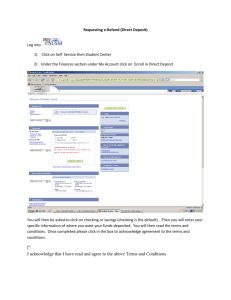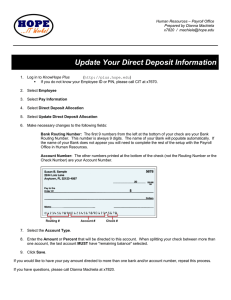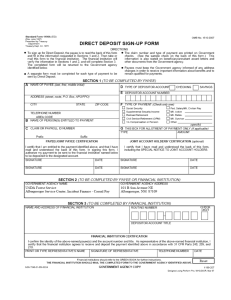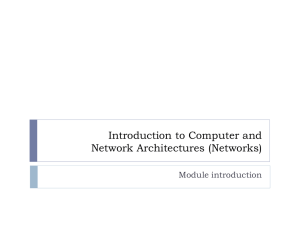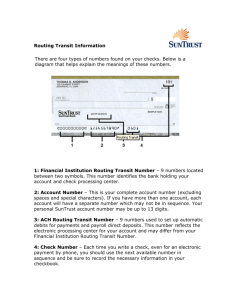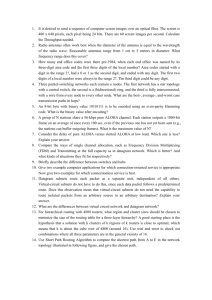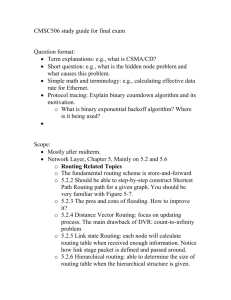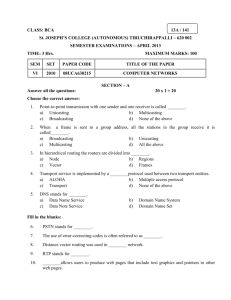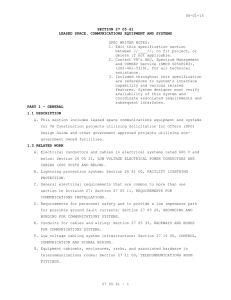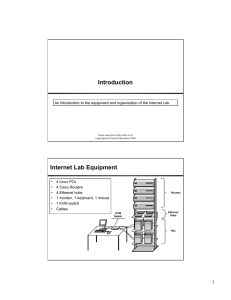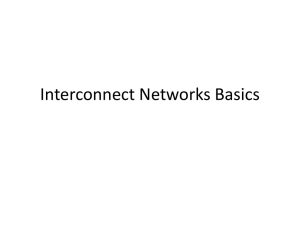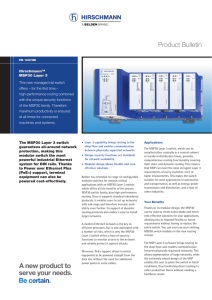C H A B O T O L L E G E
advertisement
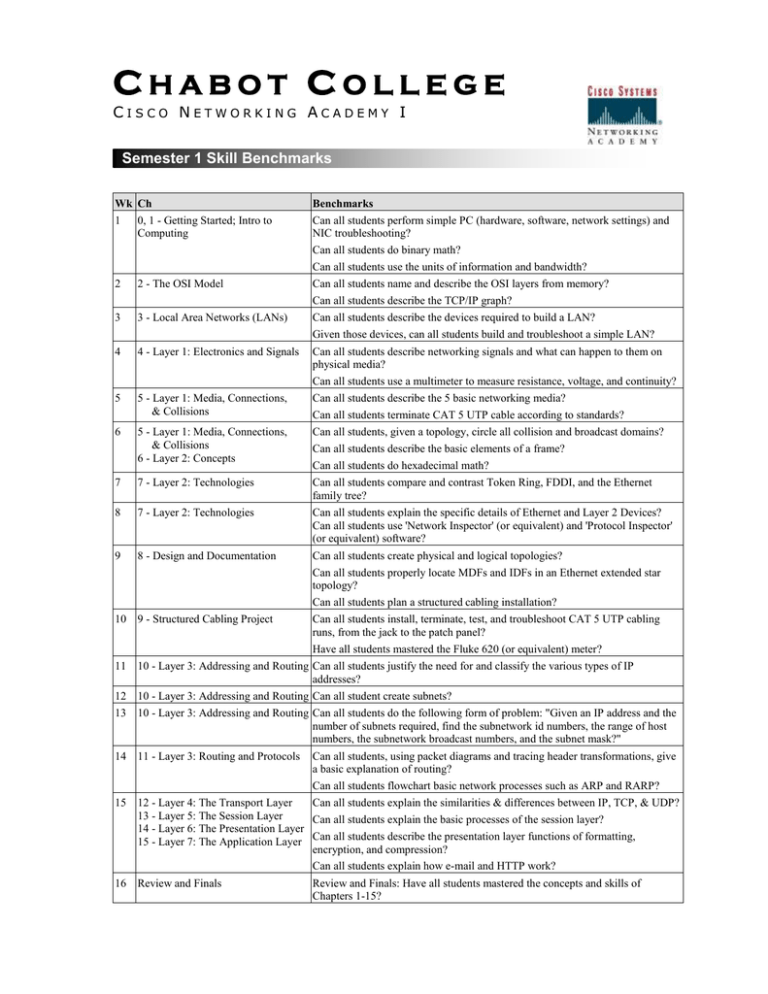
CHABOT COLLEGE CISCO NETWORKING ACADEMY I Semester 1 Skill Benchmarks Wk Ch 1 0, 1 - Getting Started; Intro to Computing Benchmarks Can all students perform simple PC (hardware, software, network settings) and NIC troubleshooting? Can all students do binary math? Can all students use the units of information and bandwidth? 2 2 - The OSI Model Can all students name and describe the OSI layers from memory? Can all students describe the TCP/IP graph? 3 3 - Local Area Networks (LANs) Can all students describe the devices required to build a LAN? Given those devices, can all students build and troubleshoot a simple LAN? 4 4 - Layer 1: Electronics and Signals Can all students describe networking signals and what can happen to them on physical media? Can all students use a multimeter to measure resistance, voltage, and continuity? 5 5 - Layer 1: Media, Connections, & Collisions Can all students describe the 5 basic networking media? Can all students terminate CAT 5 UTP cable according to standards? 6 5 - Layer 1: Media, Connections, & Collisions 6 - Layer 2: Concepts Can all students, given a topology, circle all collision and broadcast domains? Can all students describe the basic elements of a frame? Can all students do hexadecimal math? 7 7 - Layer 2: Technologies Can all students compare and contrast Token Ring, FDDI, and the Ethernet family tree? 8 7 - Layer 2: Technologies Can all students explain the specific details of Ethernet and Layer 2 Devices? Can all students use 'Network Inspector' (or equivalent) and 'Protocol Inspector' (or equivalent) software? 9 8 - Design and Documentation Can all students create physical and logical topologies? Can all students properly locate MDFs and IDFs in an Ethernet extended star topology? Can all students plan a structured cabling installation? 10 9 - Structured Cabling Project Can all students install, terminate, test, and troubleshoot CAT 5 UTP cabling runs, from the jack to the patch panel? Have all students mastered the Fluke 620 (or equivalent) meter? 11 10 - Layer 3: Addressing and Routing Can all students justify the need for and classify the various types of IP addresses? 12 10 - Layer 3: Addressing and Routing Can all student create subnets? 13 10 - Layer 3: Addressing and Routing Can all students do the following form of problem: "Given an IP address and the number of subnets required, find the subnetwork id numbers, the range of host numbers, the subnetwork broadcast numbers, and the subnet mask?" 14 11 - Layer 3: Routing and Protocols Can all students, using packet diagrams and tracing header transformations, give a basic explanation of routing? Can all students flowchart basic network processes such as ARP and RARP? 15 12 - Layer 4: The Transport Layer Can all students explain the similarities & differences between IP, TCP, & UDP? 13 - Layer 5: The Session Layer Can all students explain the basic processes of the session layer? 14 - Layer 6: The Presentation Layer 15 - Layer 7: The Application Layer Can all students describe the presentation layer functions of formatting, encryption, and compression? Can all students explain how e-mail and HTTP work? 16 Review and Finals Review and Finals: Have all students mastered the concepts and skills of Chapters 1-15?
